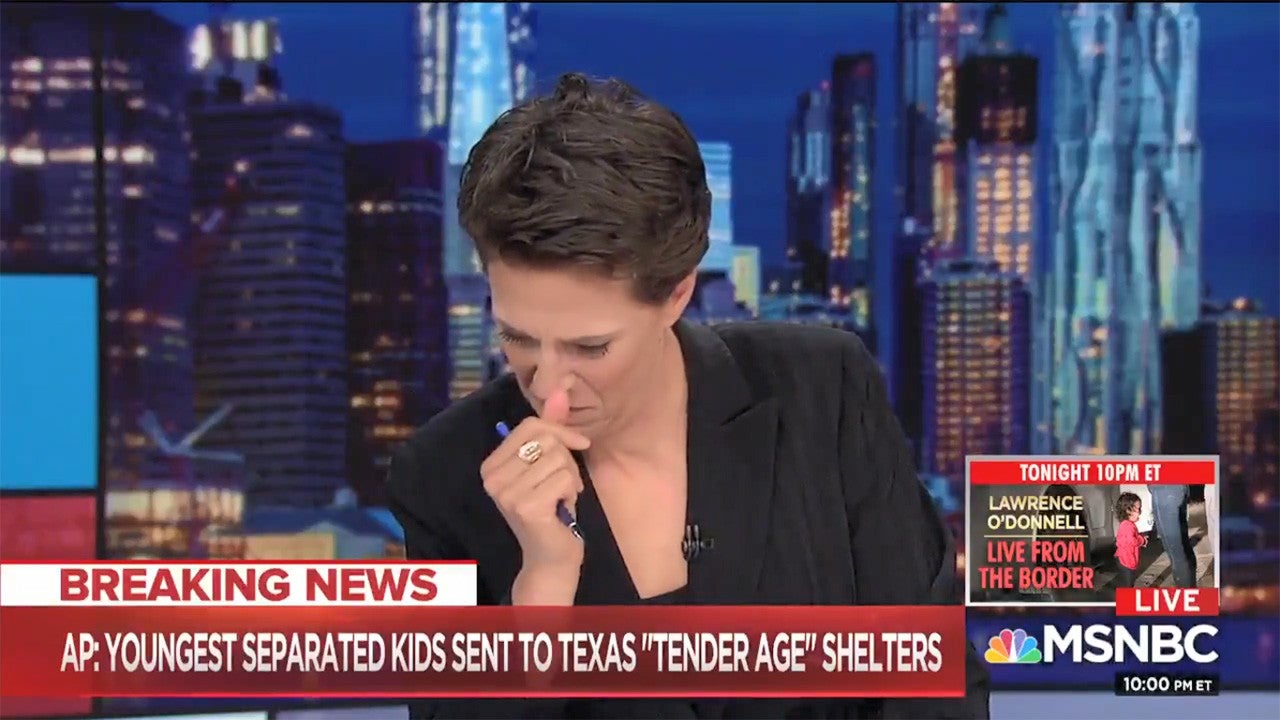Rachel Maddow Breaks Down in Tears on Air While Reading Report on ‘Tender Age’ Shelters

In a powerful moment that resonated with viewers nationwide, Rachel Maddow, host of MSNBC’s prime-time show, broke down in tears while reading a deeply distressing report concerning the treatment of young migrant children in the United States. This report detailed the existence of so-called “tender age” shelters in South Texas, where infants and toddlers are housed after being separated from their families at the U.S.-Mexico border. Maddow’s emotional breakdown highlighted not only her own feelings of anguish but also the broader societal outrage surrounding the policies enacted during the Trump administration, which have drawn criticism for their inhumane treatment of vulnerable children.
A Glimpse into ‘Tender Age’ Shelters
The term “tender age” shelter refers to facilities specifically designed for the youngest migrants, including babies and toddlers, who find themselves caught in the crossfire of immigration policies. The reports indicating that these children are placed in detention centers after being separated from their parents at the border evoke feelings of sympathy and anger among the public. With heart-wrenching stories surfacing about the conditions within these shelters, more people have begun to understand the implications of immigration laws on families, igniting a nationwide conversation about human rights and ethical governance.
Maddow’s on-air reaction brought to light the emotional depth behind these statistics and official reports. As she read about the distress and suffering these children endure, her tears articulated a sentiment shared by many— that no child should undergo such traumatic experiences. This emotional display served not only to inform viewers of the harsh realities but also encouraged them to reflect on the social responsibility to protect the most vulnerable members of society.
The Wider Implications of Immigration Policies
The issues highlighted by Maddow extend beyond the borders of the United States, as they touch upon universal human rights principles. The practice of detaining children, particularly in facilities isolated from family members, contradicts the essence of compassion and care that should guide governmental policies. The emotional impact of such decisions is far-reaching, influencing perceptions of the U.S. both domestically and internationally.
- Political Response: Politicians from both sides of the aisle have responded to these reports, calling for reforms in immigration policy to ensure that children are treated with dignity and respect.
- Activism and Advocacy: Human rights organizations have been vocal in their criticisms, emphasizing the need to reunite families and avoid the separation of children from their parents.
- Public Awareness: Maddow’s emotional moment contributed significantly to raising awareness, mobilizing citizens to advocate for changes in how immigration is handled.
Reactions from the Public and Media
Social media erupted following Maddow’s heartfelt moment on air, with countless viewers sharing their support and expressing similar outrage at the described conditions. Commentators across various media platforms have echoed Maddow’s sentiments, emphasizing the necessity for humane treatment of all individuals, particularly children, in these challenging circumstances.
Furthermore, the emotional weight Maddow conveyed has sparked discussions surrounding media responsibility in covering sensitive issues. Journalists are compelled to find the balance between reporting facts and communicating the human aspect of stories that affect millions, and Maddow’s reaction exemplifies how media can humanize statistics and ignite emotional responses.
Conclusion
Rachel Maddow’s emotional response to the reports on ‘tender age’ shelters shines a light on the urgent need for reform in the treatment of immigrant families and children. As viewers engage with these challenging narratives, it is crucial to advocate for compassion and understanding in policy discussions. If you feel moved by these events, consider reaching out to local advocacy groups or becoming involved in initiatives that seek to protect the rights of children and families caught in the immigration system. Your voice can make a difference.


